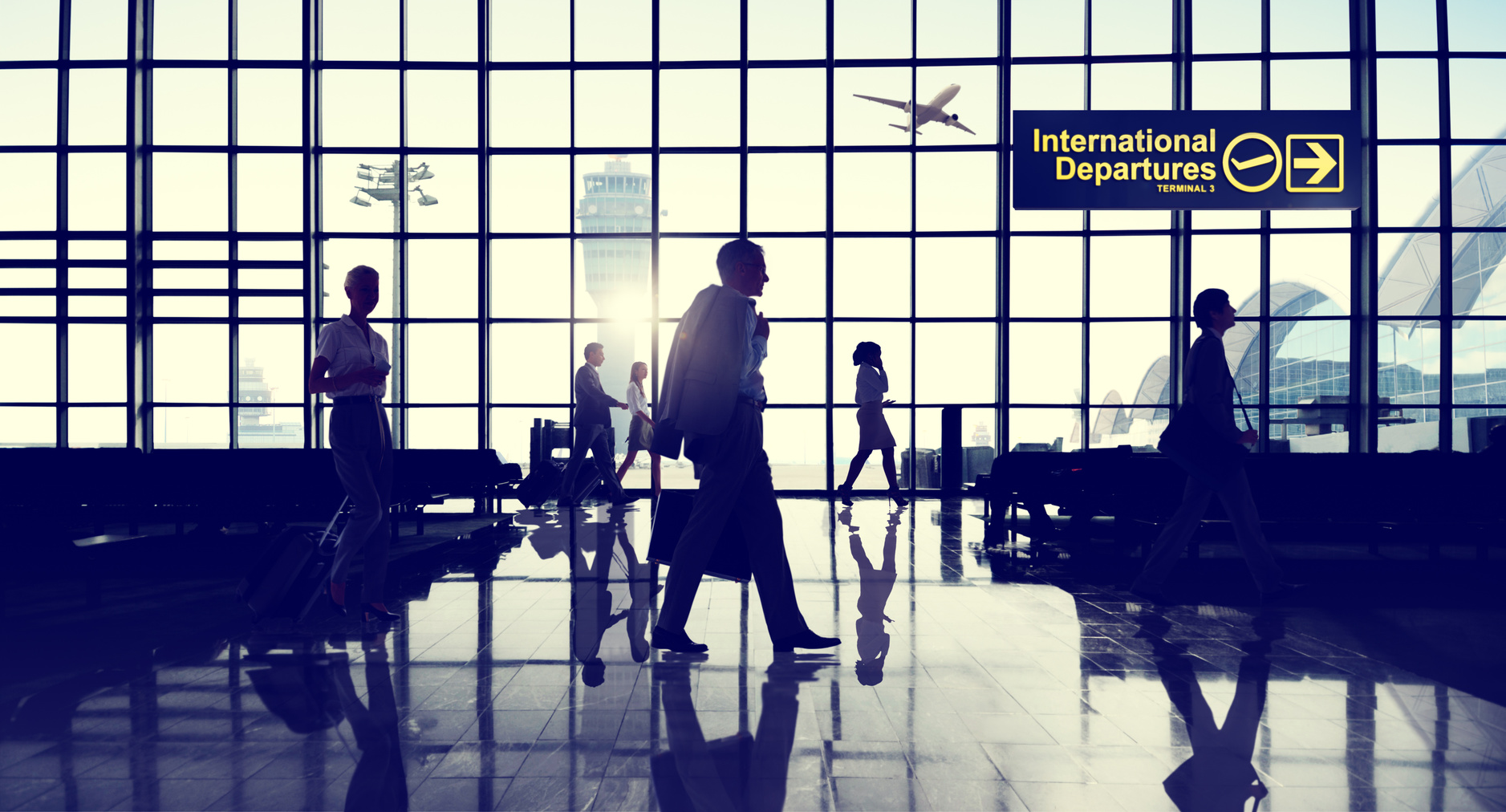Keeping Peace of Mind When Traveling in an Uncertain Time
Past events of 2016 and recent executive orders from the new administration have created a new year of travel challenges and concerns. And while business travel continues to increase globally, so does the acknowledgement of travel risk. According to a recent global Ipsos MORI survey of over 1,000 individuals who organize, influence or are responsible for their organizations travel and risk mitigation policies, 72% of respondents reported an increased perception of risk. Airport security, shared economy services and travel safety education were three topics top of mind.
Hustle and Bustle of Airports: Traveler populations are on the rise which is impacting the volume of airport crowds. Alleviate the stress of an airport experience by keeping a few things in mind:
- Enroll in a pre-clearance program like TSA’s Global Entry or the UK’s Trusted Traveler Program to avoid long security lines
- Monitor airport signs to identify security checkpoints with less traffic
- Keep your ID and boarding pass(es) readily available as you navigate your way to the front of the line
- Check the airport’s social media accounts for the latest information on any disruptions
Shared Economy Services: While traveling for business, ground transport and lodging are key parts of any itinerary and organizations should incorporate these arrangements into their travel risk mitigation plans. While business travelers have been quick to embrace shared economy services, like Uber and Airbnb, organizations have been slow to implement guidelines about the usage of such popular services.
- New research from the International SOS Foundation reveals that 75% of organizations lack policies or procedures for using these services and 40% of people do not know whether their organizations consider these types of services to be “safe.”
- Shared ride services can be considered as safe as a hotel car service or a traditional car and driver service yet it is important to note the different classes of service and their subsequent security provisions (or not).
- Shared economy lodging options currently have less rigid safety and security standards than hotels and without the proper tracking mechanisms in place, can present special challenges when companies are confirming the safety of their employees during an emergency event.
- Road traffic accidents are one of the most common incidents when traveling abroad, and travelers should avoid self-driving in destinations where they are unfamiliar with local driving conditions.
Travel Safety Guidance: Within the Ipsos MORI survey, 49% of respondents felt that educating employees about travel risks was among the biggest challenges organizations currently face. Regardless of travel destination or risk level, it is important that travelers remember to:
- Maintain a heightened sense of confidence and situational awareness. Be alert to suspicious behavior.
- Make two copies of their passport and other important identification documents (leave one copy at home or in the office with someone trusted).
- Ensure emergency contact numbers are pre-programmed into their mobile phones. Phones should be fully charged and always accessible. Global data plans need to be activated.
- Use a privacy screen when using laptops in any public space (e.g. hotel lobbies and airplanes). Use caution when downloading or clicking on any unknown links.
- Never pack valuables (e.g. laptops, cameras, jewelry, mobile devices) in checked luggage. Use hotel safes and always keep track of valuables. The display of these items should be minimized so that unwanted attention is not received.
